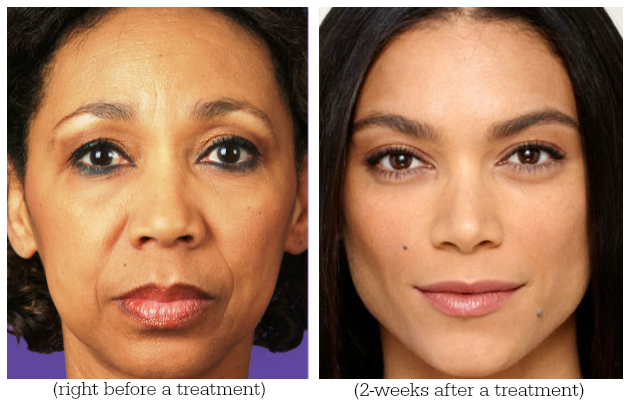
Any kind of cosmetic treatment, whether laser, injections, peels, or surgery, is supposed to make your face look different. But, how much further does the impact of the procedure?go beyond just a change in physical appearance?
A recent study done by the journal of JAMA Facial Plastic Surgery looked into the far-reaching social implications of all nips and tucks. Based on their findings, the psychological and social changes that occur as a result of cosmetic changes, was unexpected (but perhaps not wholly surprising).
For the study, 173 people ? 110 women and 63 men ? were given photos of 30 white women who had either just had, or were about to have, an aesthetic procedure. (The before-and-after pictures were carefully mixed into different groupings so that no test-subject would see both the before and after picture of the same person.)
With each picture seen, the subjects were asked to rate the women against 8-criterion including likability, attractiveness, femininity, trustworthiness, and social skills.
Perhaps as one would guess, the ?after? photos were rated higher for attractiveness and femininity than the “before” photos.
However, the news-worthy component of the study came from the fact that the ?after? pictures were also rated higher for likability and having better social skills. ?
So, how could it be possible that without speaking, or interacting with one stranger at all, another? stranger could rank them as more or less likely to be popular based on appearance alone?

That is the interesting part. ?
Our brains are hard-wired to respond to attractiveness. The better-looking (or younger) a person is, the more likely they are to be perceived as a healthy mate with which to reproduce healthy off-spring. Subconsciously, the more attractive a person is, the more ?likable? others will see them as. (It isn?t fair, but it?s natural inclinations like this that have kept the human race thriving through the millennia.)
Additionally, when people feel better about themselves (which would hopefully be the case after under-going a desired aesthetic treatment), they carry and present themselves differently. Perhaps the ?after? pictures showed women smiling directly at the camera, or perhaps holding their heads up a little higher. Confidence is something that other people can easily pick-up on, and is also perceived as a desirable trait in a partner. (The more confident, the more likely someone is to prosper and survive.)
Since the majority of subjects in the study were women (110 out of 173), it is doubtful that the majority of them had homosexual inclinations, and were looking at the pictures with a subconscious intention to mate. However, even if making babies wasn?t the subliminal end-goal, for the purpose of survival, it is important to surround one?s self with the strongest cohorts possible ? and based on pictures alone, the most attractive and confident women would seem like the best peers to associate with. ?
(Interestingly, the women were also rated for ?trustworthiness?, however the scores between the ?before? and ?after? pictures for trustworthiness were not statistically significant.)

Although the findings of the study are very interesting (it?s always somehow satisfying to have scientific data that supports your previously unproven beliefs) it goes within the laws of nature that the strongest survive. In the animal kingdom, the strongest are usually the most attractive (like a male lion or peacock, the good looks indicate health, strength, and virility) and natural leaders (by displaying confidence, it makes others want to follow and support you, ensuring your safety.) If undergoing cosmetic procedures can help boost your place in the world?s pecking order, than by all means ? you owe it to yourself to safely explore and learn about your options.
However, it does need to be noted that every cosmetic procedure runs the risk of having a negative outcome. If this results in you looking worse, than according to this study you?d be perceived as less likeable, less socially skilled, and ultimately weaker. Net take-away? Practice caution, and be realistic and informed in your endeavors to ensure you will end up as happy with your outcome as everyone else who sees you. J